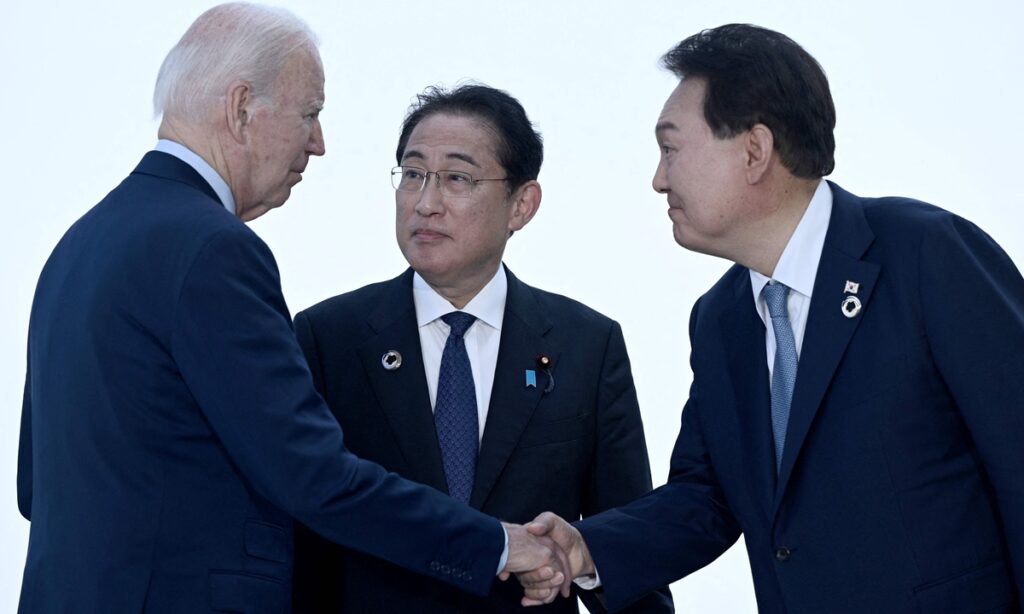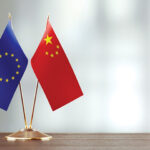The so-called strengthening of US-Japan-South Korea strategic cooperation is in fact building a “small NATO” in the Indo-Pacific region and would only damage regional security, Chinese experts said Sunday as Japanese Prime Minister Fumio Kishida said Friday he hopes to discuss further strengthening of three-way strategic cooperation with leaders of the US and South Korea at a summit hosted by US President Joe Biden at Camp David later this month.
“I have high hopes that this summit meeting will further strengthen the foundation for strengthening ties with the US and South Korea, which have been built up through multi-layered efforts including at the summit level,” Kishida said during a news conference on Friday, AP reported.
Biden will host Japanese Prime Minister Kishida Fumio and South Korean President Yoon Suk-yeol at Camp David on August 18, White House press secretary Karine Jean-Pierre said in a statement on July 28.
The upcoming talks will be the first standalone summit among the leaders, although they have held trilateral meetings on the fringes of international conferences and other occasions, media reported.
The summit will focus on expanding cooperation in the region, including countering threats from North Korea related to its ballistic missiles and nuclear weapons program, the statement read, and to strengthen ties with Southeast Asian Nations and the Pacific islands.
Besides, leaders from the three countries are considering making their trilateral summits a regular event to demonstrate their close ties amid the so-called growing security threats from North Korea and China, according to media reports. This was interpreted by some observers as suggesting that the three countries would work together to contain China’s growing influence in the region and counter China’s unwavering attitude in resolving the Taiwan question.
The so-called strengthening of strategic cooperation is in fact building a “small NATO” in the Indo-Pacific region, forcing the already tense situation to continue to slide into a vicious circle of tension and confrontation and arms race, analysts noted.
The US wishes to increase its involvement in regional affairs in the Asia-Pacific, especially to contain China, even if such military and security involvement means that the regional situation will further deteriorate and the risk of conflict and friction will further increase, Lü Chao, an expert on the Korean Peninsula issue at the Liaoning Academy of Social Sciences, told the Global Times on Sunday.
Japan can be said to be the most proactive in the US concept of a regional military alliance aimed at revitalizing its military presence in the Asia-Pacific, Lü said. As for South Korea, the Yoon administration’s one-sided foreign policy toward the US is holding the country hostage to following in the footsteps of the US and Japan, thus losing its limited room for maneuver, he continued.
Tensions between Japan and South Korea thawed as the Yoon administration bowed to Japan to please the US and to cooperate with Washington’s Asia-Pacific strategy to counter China, analysts pointed out. Meanwhile, bilateral relations between China and the two countries have soured due to Tokyo and Seoul’s willingness to serve as US vassals in the region.
The price of the thaw in relations between Japan and South Korea has been a collapse in regional peace and stability. A series of moves by the US, Japan and South Korea will only increase the risk of confrontation among regional blocs, undermine the already fragile mutual trust among all parties, and undermine the strategic security interests of other countries, experts noted.
(Global Times)




